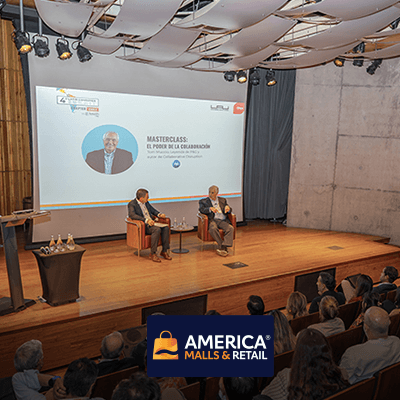Political crisis, insecurity, and integration: the common challenges of Chile and Latin America
At the 3rd Latin Consumer Summit, former Chilean President Eduardo Frei warned about the impact of organized crime on regional development.
May 9, 2025
The third Latin Consumer Summit brought together the former presidents of Chile and Costa Rica, Eduardo Frei and Laura Chinchilla, along with the former Chilean finance minister, Felipe Larraín.
During the meeting, the Chilean case was discussed: an economy that stood out for its prosperity after the return to democracy, but has faced a slowdown in growth and a political scenario marked by polarization in recent years.
At the beginning of the forum, Frei mentioned his participation in Larraín's book “Chile 2050: One country, four presidents.” A text that collects the testimonies of the last four heads of government looking towards the future: “Not everywhere can all the presidents come together,” recognized Frei at the event held by the Ohla Group, at Florida International University in Miami.
However, the former president criticized the discussions in his own country about the past, mainly about the dictatorship period of Augusto Pinochet. “In Chile, 50, 100, 200 years will pass and there will never be an official truth about what happened. That’s why we need to look to the future,” he commented.
For his part, Larraín, who is on the opposite side of the political spectrum, echoed Frei’s perspective and agreed that the country should not remain discussing past issues, but look forward. “With what purpose? To be able to move towards a developed country,” he declared.
Moreover, the stories of the other Latin American countries have common points. “We are used to in Latin America that we choose a government and they say ‘we are going to found a new country.’ When one assumes power, they do so with the history of Chile, of their country, and cannot change history. What needs to change is the future,” said the former president.
Regarding the current situation of the Southern Cone country, Frei stated that there is a political crisis because fundamentally there is no “good politics”: “without laws and new governments, progress is not made,” he commented.
Security crisis in the region
Shortly after, the former head of government referred to multinational criminal organizations as another scourge hitting the country. “Now we have the Aragua Train, the Sinaloa Train; there are eight groups of this type,” he added.
For his part, Larraín said that the region has also been unable to unite in the fight against organized crime, which is currently multinational and when one country tightens its laws, they move to another.
In turn, Chinchilla also warned about the advance of organized crime as one of the main challenges facing Latin America. “This combination of highly powerful criminal groups facing very weak institutions is generating a threat not only to citizen coexistence (...), but also is controlling territories and penetrating institutions,” he warned.
In numbers, the former official noted that 60% of homicides in the region come from organized crime. “Ecuador, between 2015 and 2022, saw an increase of over 600% in the number of homicides. Chile, in the same period, recorded an increase of more than 200%, and Costa Rica, close to 70%.”
In addition, Frei pointed to Peru and Ecuador among the countries that used to be safer and are now going through states of emergency. “If we do not solve the problem of security and the entire drug trafficking network, it will be very complicated. Without security, there is no investment, there is no activity,” he warned.
Regional integration
There are also failures in the scarce or nonexistent integration of the region as an economic block. Although multiple organizations and groups have been created, they have not prospered or are formed marked by political affinities.
“Latin America is not in the global sphere; the region's opinion -unfortunately- does not count. We are not capable of integrating. We have constructed many project agreements for a long time, but they have not worked,” explained the former Chilean finance minister.
“We cannot have the ambition at this moment to become overnight the European Union, because there is still a long way to go,” he pointed out. And he reminded that, so far, nations have been unable to agree on having free intra-regional trade.
For Chinchilla, there are plenty of reasons for Latin America to seek integration; however, the former president was skeptical about a block agreement. “If we could not do it in the greatest tragedy that has struck us, which was the pandemic, when we had three representatives at the G20; they were unable to go with a single voice to request vaccines for Latin America,” recalled the former head of government.



